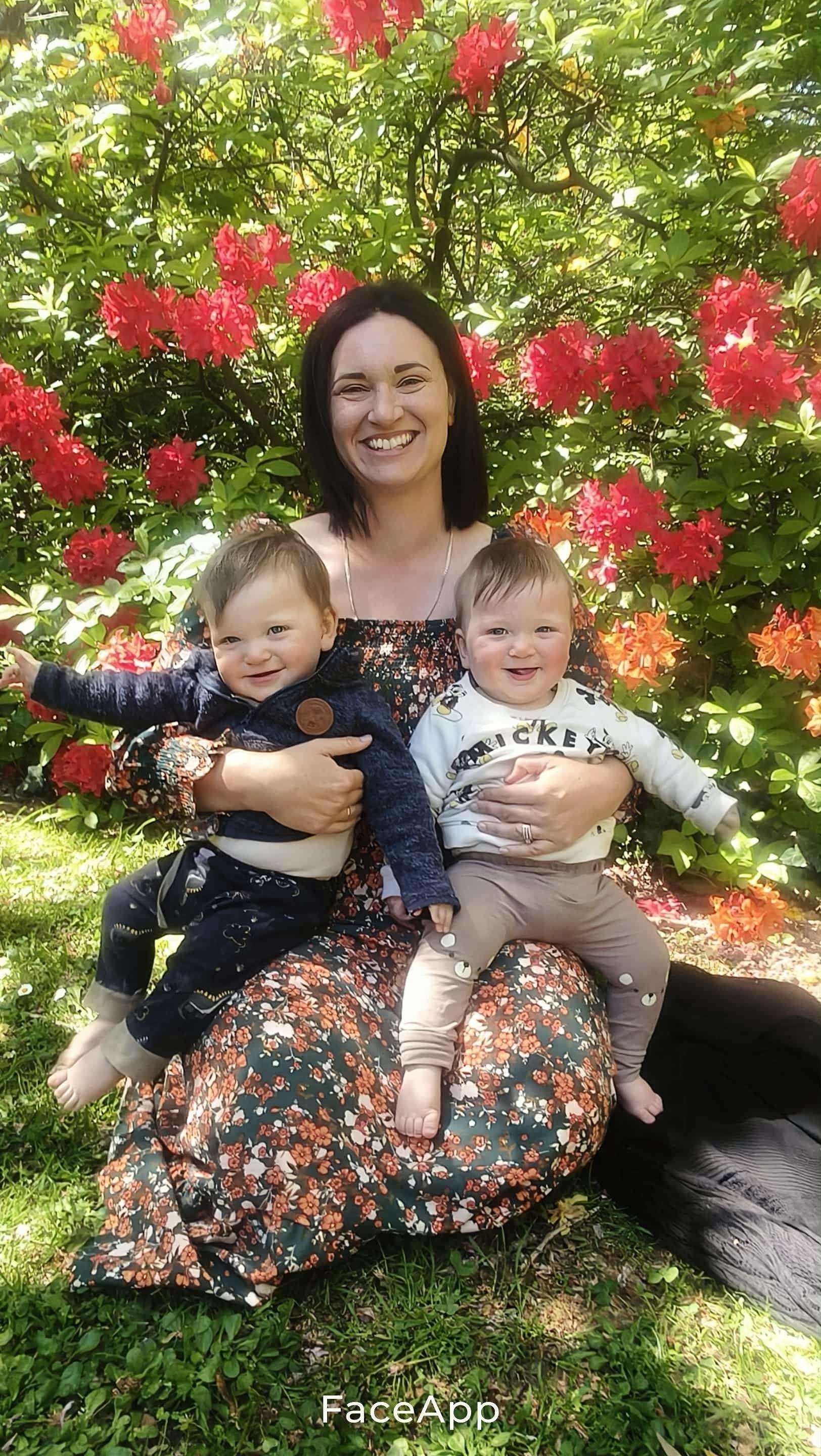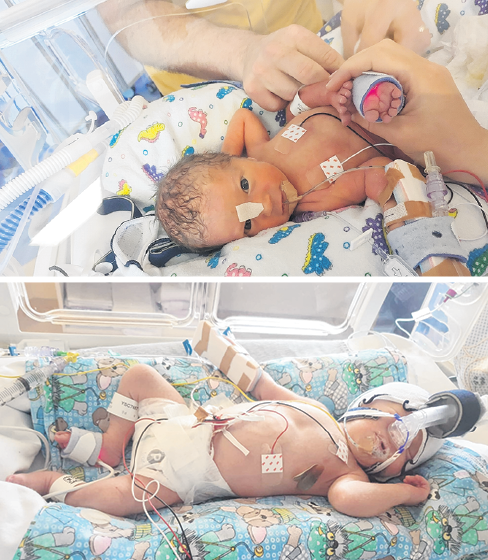
This Christmas, many Canterbury parents will face the same dilemma.
One Mother to Another has launched its ‘Give a Little Hope This Christmas’ campaign, aiming to raise $20,000 to provide care packages for families spending the day at their child’s hospital bedside.
Toneycliffe hadn’t expected to become one of them. When the Kaiapoi mum took a long weekend trip to Geraldine late last year, she didn’t imagine she would return home needing urgent medical care during her twin pregnancy.
A type-1 diabetic, she had already been closely monitored after doctors noticed her insulin needs were dropping – a sign something could be wrong with the placenta.
She had also spent much of the pregnancy on bedrest, too unwell to drive, and often in hospital with severe morning sickness.
She and husband Andy drove to Christchurch Hospital with Oliver as her blood pressure soared to dangerous levels.
“I was going from huge numbers of insulin to almost nothing. They said it was a sign things were going wrong,” Toneycliffe said.
“I was admitted, sent home for two days, then straight back in again. From that point on, everything unravelled.”
Over the next three weeks, Toneycliffe’s condition deteriorated. Her kidneys worsened, her blood pressure stayed dangerously high, and she was moved into a one-on-one care room under constant monitoring.

At 32 weeks and six days pregnant, doctors made the call – she needed an emergency C-section.
Her sons, Henry and Theodore, were taken straight to NICU. Toneycliffe, already worn down, then developed postnatal pre-eclampsia, a serious and often frightening complication that sent her blood pressure spiking even higher.
“It was worse after I’d given birth. I ended up spending another couple of weeks in hospital. Altogether, I was there about three weeks. The boys were there for five.”
At home, her son Oliver struggled with the separation.
“He didn’t want to come near me because of all the IV lines. He was frightened. It broke my heart. And because of the infection risk, he couldn’t meet his brothers for weeks.”
Toneycliffe and Andy had expected their twins to arrive around Christmas – but not to spend all of December in NICU.
“Christmas in NICU is really hard. You’re torn between your sick babies in hospital and your child at home,” she said.
During one of those long days, a small surprise offered a moment of relief – a One Mother to Another care package left at the foot of the incubator.
“We took it home for Oliver to open on Christmas Day. He’d felt so left out having spent more time with his grandparents during December than at home.
“Seeing his excitement made us all feel like we were part of something again.”

The charity is now crowdfunding to raise $20,000 for additional Christmas care packages, on top of the 7000 packs it supplies throughout the year to parents and whānau in 21 South Island hospital wards – most of them in Canterbury.
“No parent expects to spend Christmas in hospital, let alone separated from their children.
“In that situation, the smallest act of kindness can feel like a lifeline.
“Our Christmas care packs are our way of saying, ‘you’re not alone, and we see you’,” Reid said.
“They really make a huge difference.”

Each one made a profound difference.
“The first note I read nearly made me cry,” she said.
“I felt like I was the only person going through this awful time. That little handwritten message made me feel seen and gave me hope.”
A gratitude journal included in one package also became important.
“My husband wrote in it every day – what the boys were doing, what had changed, when they moved rooms. It helped us feel like there was light at the end of the tunnel.”

“He came home and said, ‘I got one!’, half joking, half proud. It made him feel included too.”
Today, Henry and Theodore are thriving one-year-olds. But the emotional impact of their early arrival, and Toneycliffe own medical emergency, has stayed with her.
“I have a lot of anxiety around health now. This time of year is quite triggering. But talking helps. It’s been a journey.”
For families like hers, small gestures can feel huge.
“It sounds small, but when you’re going through trauma, the smallest acts of kindness are massive,” Toneycliffe said.
“It made me feel like someone cared. Like we weren’t alone.”
-Allied Media













